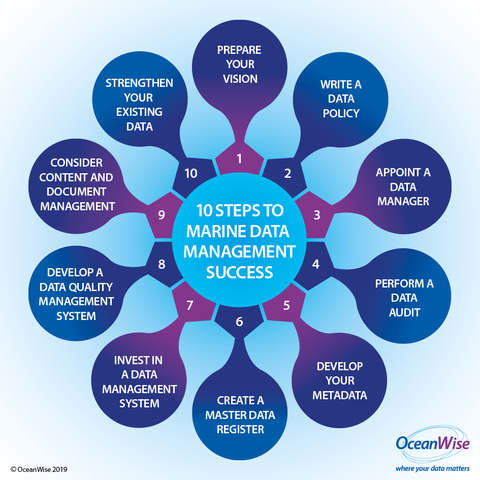
Above image courtesy of EMEC
As global energy consumption increases and climate change makes headlines across the world, developing new technologies to harness energy from our oceans to generate electricity is now more important than ever.
The European Marine Energy Centre (EMEC), established in 2003 and based in Orkney, Scotland, is the first and only centre of its kind in the world to provide developers of both wave and tidal energy converters with purpose-built, accredited open-sea testing facilities.
EMEC, who is at the forefront of tidal and wave technology development, take data very seriously and realise the operational benefits that come from getting the best out of their investment in geographic information system (GIS) and employing a whole business approach to data management.
EMEC recently embarked on a project with marine data experts OceanWise to further improve GIS and data management capabilities. Throughout the project, OceanWise delivered training programmes in data management, QGIS and supported EMEC to convert their existing diverse datasets into a geospatial database. They also linked QGIS to existing data systems and implemented metadata management across the business.
OceanWise also assisted EMEC to update their data policy and strategy and prepare a roadmap to include data management as part of their existing business management framework.
David Darbinyan, senior metocean engineer at EMEC explained:
“OceanWise provided EMEC with valuable support in managing our diverse datasets. OceanWise not only provided a high-level overview of best data management practices, but also supplied very concrete and hands-on steps to improve our existing approach. The feedback provided was tailored specifically for EMEC and allowed us to take full advantage of our existing Integrated Management System tools and processes.”
Why does data matter?
Data is now often referred to as the ’new oil or electricity’ as its intrinsic value to any organisation is only bettered by that of its employees. Whilst we are very good at collecting data – business data volumes are still doubling every 1.2 years – but with greater volumes of data, comes greater responsibility. If you want to optimise the value and usefulness of your data, then firstly you must make sure that it is properly managed.
What is data management?
Data is often thought to be the responsibility of the IT, ICT or IS department but in reality, it is the responsibility of everyone in the business – a key part of the business management infrastructure, much like quality management or health and safety. Of course, systems and software have their role and can provide the ‘pipework’ or ‘plumbing’, but everyone is responsible for the data flowing through the pipes.
OceanWise’s 10 steps to Data Management Success (see below diagram) describes the key steps that any organisation must take to succeed on their data management improvement journey. A good starting point for any data management project is to prepare your vision – where do you want to be? Auditing your data is also a key step and should involve people from different departments working together to better understand what data they have, where it comes from and where it resides in the business, and how it is used and by whom. This will help the organisation overcome the ‘silo’ mentality and a lack of communication between departments that is often prevalent.
More information, useful tips, free publications and available training courses can be found on here.







